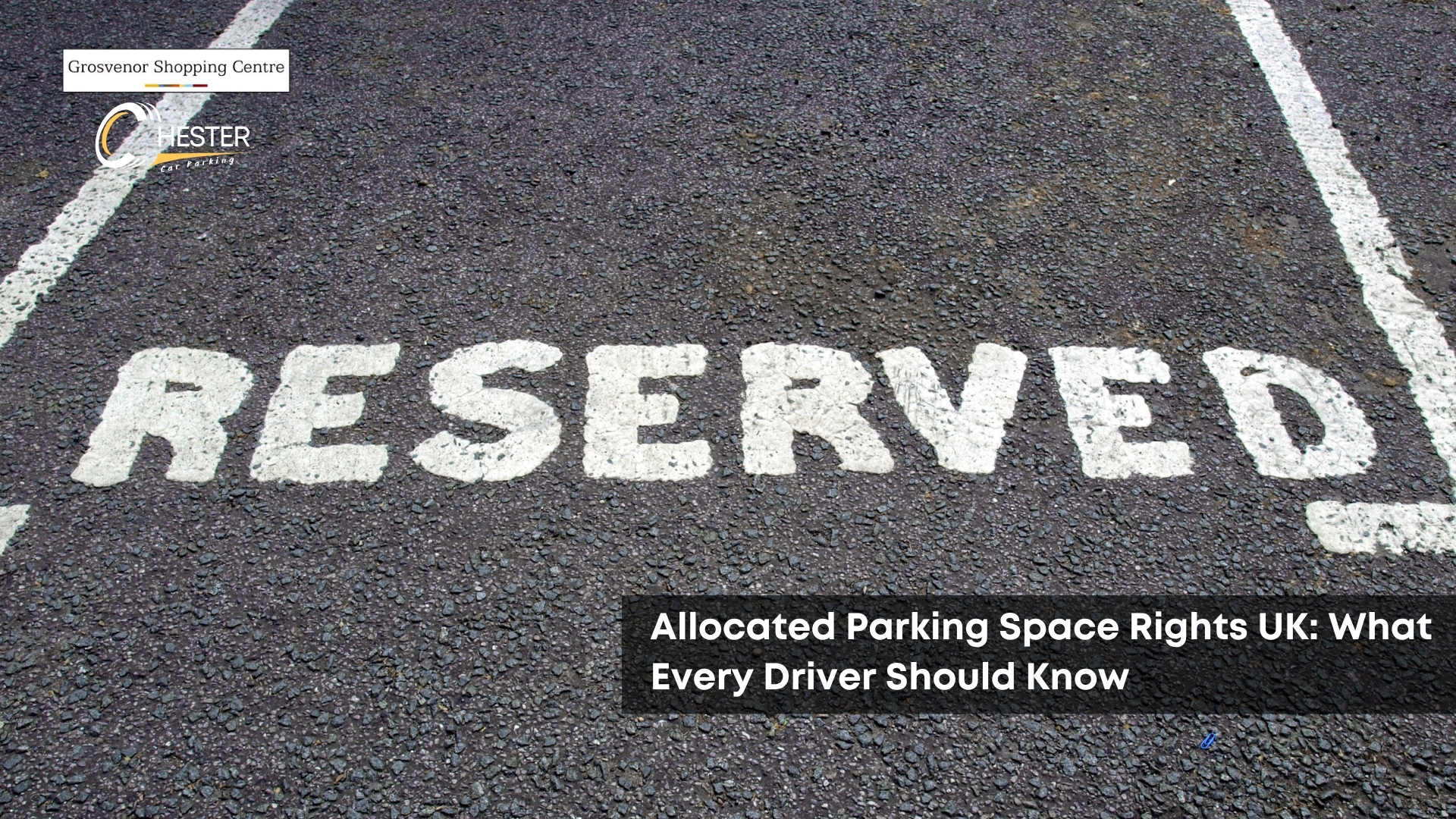Allocated Parking Space Rights UK: What Every Driver Should Know
Do you know exactly what rights you have over your allocated parking space? Many UK drivers are unsure of what they can and cannot do with their parking space, which can lead to frustrating disputes and confusion. Whether you’re in a shared residential car park or a private development, understanding your allocated parking space is key. This guide from Car Parking Chester clearly and practically breaks down the essential rules. Let’s begin by looking at what an allocated parking space is.
What Is an Allocated Parking Space?
An allocated parking space is a designated bay assigned to an individual property or tenant for the exclusive use of their vehicle. It may come with a flat, a house, or as part of an office or commercial lease, and it helps avoid competition over general parking spots. Depending on the setup, the parking space allocation could be included in a leasehold or freehold agreement or handled informally by a landlord or managing agent. Now that we understand what the space is, the next issue concerns control and ownership.
Who Legally Owns or Controls the Space?
The legal control of an allocated parking space depends on how it is defined in property documents. It can either be part of the legal title (you own it), a demised space in your lease (you lease it), or a licence to use (you have permission). Allocated parking space rights under UK law mean that your agreement determines who gets the final say over access. If you’re wondering what this means for outside use, let’s explore that next.
Can Someone Else Park in Your Allocated Space?
No, someone else cannot legally park in your allocated parking space without your permission if it’s assigned to you. This includes neighbours, delivery drivers, or visitors, unless your agreement says otherwise. Allocated parking space rights allow you to challenge this type of misuse, especially if it causes obstruction or repeated inconvenience. But what if the person blocking your spot is your neighbour?
What Should You Do If a Neighbour Uses Your Spot?
If a neighbour parks in your spot without agreement, start by speaking politely and clearly stating your rights. If that doesn’t work, contact the property manager, housing association or management company to report the issue. Keep a record of each incident, especially if it persists, and avoid escalating the situation. Since rights are often based on property documents, let’s look at where those details are usually found.
Are Allocated Parking Rights Included in the Lease or Title?
Yes, most allocated parking rights are defined in your leasehold agreement or title deed. These documents outline exactly what is legally yours and whether the parking space is part of your ownership or just assigned for use. In shared properties, parking space allocation can be based on rotation or availability; however, formal allocated parking is typically detailed in the legal documents. If your rights can be defined, can they also be changed?
Can Parking Rights Be Changed or Taken Away?
Yes, parking rights can sometimes be changed or removed if the lease or contract allows it. For example, if your lease includes a clause that allows the landlord to rearrange bays or reassign spaces, you might lose your specific spot. Always read the fine print and check if a right-of-way or easement protects your parking use. To secure the space more effectively, you may want to consider installing a deterrent.
Do You Have a Right to Install a Bollard or Sign?
Yes, in some cases, you can install a parking bollard or sign, but only if your lease or property agreement allows it. Blocking off a space with a parking space barrier or a post can deter unauthorised use, but adding permanent fixtures without consent may breach property rules. It’s best to get written permission if you’re unsure. Sometimes, though, the problem is less about trespass and more about poor layout.
What Happens When Allocated Spaces Are Not Marked?
When markings are faded or missing, it can be unclear who owns what, leading to regular disputes. If your allocated parking space isn’t visible or labelled, request that the property manager add clear signs or repaint the lines using durable solutions like Car Park Matting. Document any confusion or incidents caused by the lack of clarity. But if disputes persist or worsen, what legal options do you have?
Can You Take Legal Action Over Parking Disputes?
Yes, if someone repeatedly parks in your space or if your rights are being breached, legal action is an option. You could start with a letter from a solicitor and escalate to court if necessary. Legal backing depends on your lease terms, title deed, and proof of regular interference. While this may feel like a hassle, knowing your rights and understanding how available spaces are designated gives you the confidence to take action.
Why Knowing Your Parking Rights Protects You and Your Property
Yes, knowing your allocated parking space rights UK helps protect you from stress, disputes, and potential property damage. Whether you’re renting or own your property, these rules exist to ensure fair use and access. Based on our experience, we recommend that you click here to review your documents, speak with property managers if you are unsure, and keep your space clearly marked. Being informed today means fewer problems tomorrow.


Leave a Reply